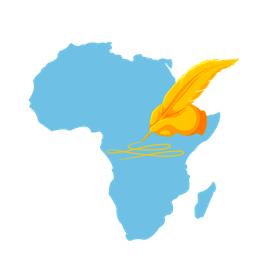By Denis Jjuuko
A big segment of Uganda’s population that one could describe as middle class today grew up in average income families and in rural areas. Their parents were keen to send them to fairly good primary and secondary schools. Many were enrolled into several institutions of higher learning that were located across the country. Makerere was the only university at the time. If one didn’t make it there, they joined other institutions like the colleges of commerce, teacher training schools, nursing schools and a host of other technical institutions.
During holidays, many of these children worked for their next academic term’s school fees and other requirements. Holiday time meant working in the coffee gardens or in the courtyard drying and storing coffee or on any activities available on the farm. Computer games and 24-hour a day TV programing were non-existent.
Many kids knew that working hard was the only way to make it in life. It still is for most kids not lucky enough to be born with gilded spoons in their mouths. However, as Uganda continues to urbanize at a relatively high rate, many kids in urban homes wake up to watch TV, play computer games and pick carbonated soft drinks from the fridge and hang around the walkway rails of Acacia Mall.
In some of the high-end schools where kids go, there is every little service at a fee that you may think of. People who wash the clothes or washing machines were a fee is paid is now common. This may not be necessarily new. Students from poorer family backgrounds used to wash clothes for those from richer families but it wasn’t as institutionalized as it is increasingly becoming today. Of course, technology, for those who can afford it, should make life better and one may wonder why children should wash their clothes when there is a washing machine but the issue is that many children are growing up being pampered and not be prepared to take on the world.
As many children start their holidays having finished national and end of term examinations, parents should enroll them into some programs where they could learn a skill or two. There are many safe online programs that urban kids with access to internet and computers can learn. All what parents and guardians need to do is to find them and recommend them to the children.
Kids could learn to code, use AI, develop apps or storytelling. Many businesses including those of the parents need apps that would enable them provide a better experience or service. Imagine a parent who owns a car repair garage, a mobile app may enable customers to get updates in real time of the repairs being performed or when the next service or insurance is due. A customer may be reminded that their driver’s license is about to expire and therefore should plan on renewal. The customer would be happy to deal with such a garage.
But the child could also fully work in the garage alongside the parent instead of staying at home to watch TV, sleep, eat and do it again for 60-90 days of the holiday or vacation.
Parents and guardians must avoid the notion that children working especially in jobs that may be considered ‘dirty’ is making the children suffer. Children should not have any feeling that working on the farm is suffering either. They should look at it as skilling or apprenticeship.
In fact, in many parts of Africa, ‘dirty’ jobs are going to be more available than office jobs or cool ones like developing apps (even when I recommend it as one of the skills that kids must learn). Such jobs still exist in developed countries. Who wouldn’t need food or clothing?
As Uganda and the rest of the continent continue to urbanize and send a significant number of their populations into the middle class, ‘dirty’ jobs will increasingly become more available and profitable. For example, many people wouldn’t be able to work on their compounds, and they will require the services of a gardener to keep their lawns neat.
A child that is trained to look after their parent or guardian’s garden will eventually benefit from acquiring such skills. The child would of course need to get some marketing skills and start hitting the inboxes of their parent’s friends’ phones for similar work. Not before long, that child would be a small business owner with recurring predictable revenue.
The writer is a communication and visibility consultant. djjuuko@gmail.com
For learning storytelling skills, log onto www.storytellingafrica.com. All courses are online and are for free.










